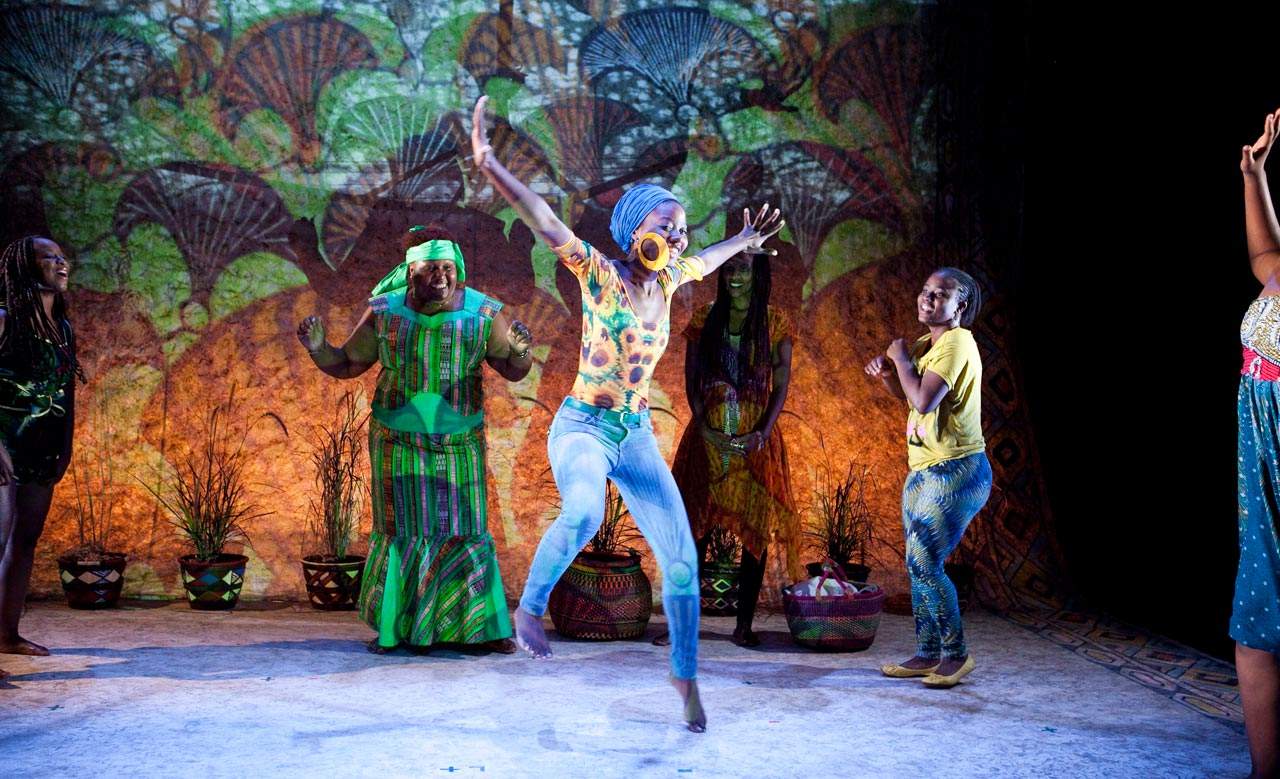The Baulkham Hills African Ladies Troupe
These ladies, and the thousands they represent, deserve your witness.
Overview
This review was written about the Belvoir Downstairs Theatre performance of The Baulkham Hills African Ladies Troupe in September 2013. The play is returning to Sydney for a run at the Sydney Opera House Studio.
There was a row of empty chairs at the matinee performance of The Baulkham Hills African Ladies Troupe I attended. Right in the front row, they seemed to stand in for the thousands, millions of people who have turned away, intentionally or unintentionally, from the stories told in the play. In a powerful two-hour exploration of violence, war, survival and hope in Africa and Australia, the silence, the emptiness of those chairs seemed to cut viscerally.
The Baulkham Hills African Ladies Troupe is not like any other play you'll see on a main stage (though it should be.) It's not even very like the other verbatim/community collaboration projects you might have seen recently. It's a bit rougher around the edges, a bit less slick. It doesn't fit so easily into Belvoir's tiny Downstairs space though it would easily fill a village square. It's a little more naive, and that is absolutely intended to be a compliment. Director Ros Horin is less concerned with exploring theatrical strategies than she is in getting stories heard in the clearest, most fulfilling way, for both the teller and the told. To this end, she uses four African women, all migrants to Australia and attendees of a cultural group organised by one of the performers (Rosemary Kariuki-Fyfe), three actors, a singer and two dancers to explore what brought these women to Australia, what they left behind and how important it is for them to be heard.
It is not possible to render in words the absolute horror and degradation these women have experienced, nor can I do justice to the transformative experience of sharing a tiny room, actual air-space and ability to touch flesh with a woman who has not only survived, for example, being a child soldier and sexual assault victim in Sierra Leone, migrated half way across the world, started a family, returned to Sierra Leone retrieve her daughter and bring her to Australia, but is capable of standing in front of a group of one hundred new strangers every night to relieve the experience. There are no flashing lights, no amazing transformations, no clever tricks. Just the truth. Which is absolutely galling.
Horin and team navigate this obviously sensitive territory with beautiful sensitivity, laying clear for the audience when an actor is standing in for one of the women, replaying for us rehearsal discussions about boundaries, and perhaps most importantly injecting a healthy dose of humour and joie de vivre into the proceedings, which provides a surely necessary note of hope.
You see, the important thing is that these women got out. They got here. And they thrived. And they obviously believe passionately in their right to be heard. Up until relatively recently, sexual abuse of women was not recognised as a war crime. Of the thousands of men who perpetuated sexual, physical and psychological violence against women as members of armies or rebel groups, only the most minute handful have ever been prosecuted. Rape is such a common occurrence that African women are told there is no point complaining about it, to get over it, move on. The Baulkham Hills African Ladies Troupe enact the deeply radical decision to ignore that advice.
The Belvoir season is, according to the website, completely sold out but that's what they said about my matinee. As we hurtle towards an election which has been pockmarked with shallow, personality-based sniping, factual evasions and a race to the subterranean on refugee policy on behalf of both major parties, it'd be well worth your while to spend a few hours camping out at Belvoir in the hope of scoring a ticket to something that might remind you what a real problem looks like. And that Australia as a nation, and as individuals of conscience has a role to play in fixing it. Don't let there be an empty seat in the house: these ladies, and the thousands they represent, deserve your witness.





